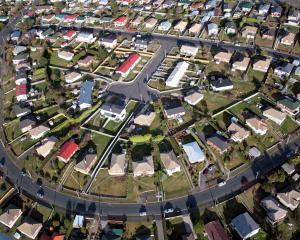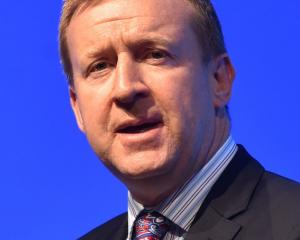What a difference a year makes for the National Party - a change for the better as far as involving its members and being decidedly more open than for many years.
This time last year, the Otago Daily Times was barred from attending all but two sessions of the National Party's Mainland Conference, held in Christchurch.
The two sessions open to the media at that conference were the speeches by Finance Minister Bill English and Prime Minister John Key.
Special permission had to be given by Canterbury-Westland chairman Roger Bridge for the ODT to attend the lunch, but under strict instructions not to interview people.
This year, in Dunedin, the scene was far different, thanks to no small effort by Southern regional chairwoman Ele Ludeman.
Mrs Ludeman was incandescent last year when the ODT - the only media outlet to turn up to the Christchurch conference on the Saturday - was excluded. She, and others, promised to do better. And they delivered.
For years, delegates had been sidelined at their own conference. Remits had disappeared, as had the chance for delegates to interact with the ministers they helped elect.
During the Saturday session of the conference, held at the Forsyth Barr Stadium, the only closed sessions were the regional annual meetings.
Yesterday, closed sessions were kept to true housekeeping matters, from which media are normally excluded.
Former speaker and long-serving Clutha MP Sir Robin Gray opened the conference with a challenge to the party around trying to involve the community more in the business of politics.
Too many people saw only the hour of question time in the House and believed that was the total input of MPs into running the country.
People still asked him why he went into politics, with an implication that he had wasted a large part of his life.
National had been in danger of losing the support of a wide cross-section of loyal supporters who had become tired of being talked at rather than talked to.
Feedback on Saturday was positive, but there is still a way to go.
This year, break-out groups got a chance to spend time discussing the speeches of the first three speakers with the speakers, before reporting back to the wider conference.
Interestingly, every MP, whether they were list or electorate, paid sincere tribute to the hard work of the volunteers who helped get them elected.
In a session close to the heart of Mrs Ludeman, eight delegates had an opportunity to "pitch a policy", a short idea that, if approved by delegates, will filter up the party's policy chain.
After an address by Mr English, in which he warned delegates the challenges ahead for the party were hard but achievable, written questions were put to four "Mainland ministers", Mr English, Labour Minister Kate Wilkinson, Women's Affairs Minister Jo Goodhew and honorary South Islander, Education Minister Hekia Parata, whose father came from Karitane.
The work that needs to be done by the party in the South Island is to change the demographic of its delegates, who are mainly white and middle-aged to elderly.
More than 20 Young Nationals had registered for the conference, the highest number for many years.
Showing members there is a chance to make a difference to the way the party operates will attract and keep activists, not all of whom want to become MPs but do want to be involved in the political process.
The weekend was a first step in the party organisation regaining the trust and support of the people who fund it.








